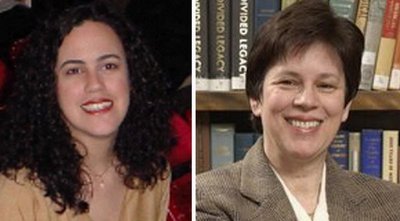October 1, 2009
Eugenics and disability in Washington to be explored in Oct. 9 symposium
The effect of the eugenics movement on people with disabilities in Washington state will be the subject of a daylong symposium sponsored by the UW Disability Studies Program on Friday, Oct. 9, in the University Tower auditorium.
Eugenics is the study or belief that the human population can be improved by discouraging reproduction by people deemed inferior — through what were believed to be genetic defects or undesirable inheritable traits — and encouraging reproduction among those seen as desirable.
In 1909, Washington became the second state, after Indiana two years earlier, to pass legislation allowing the forced sterilization of habitual criminals and those convicted of rape. The state Supreme Court upheld the law in 1912 and another was passed in 1921 expanding the population of those to be reviewed for possible sterilization to include people in state institutions and “feeble-minded, insane, epileptic … moral degenerates and sexual perverts.”
Hundreds of people were sterilized in the name of improving the gene pool before the state Supreme Court overturned Washington’s law in 1942. Nationwide, however, sterilizations in the name of eugenics continued for decades afterward.
Joanne Woiak, a lecturer in the Disability Studies Program, is organizing the symposium. “This is an opportunity to open a public dialogue about a part of history that is not well known,” she said.
Woiak said the symposium will call attention to the subjective way in which people were defined and categorized in the eugenics movement — and how traces of those biases are still noticeable today.
“It makes you question how we think of disabilities today — mental disabilities in particular. How do we think about what’s normal and abnormal in our society, and what it is to be human?”
The symposium’s morning session, from 9 to 11:30 a.m., will feature Woiak speaking on Disability in the History of Eugenics and a panel discussion moderated by Phillip Thurtle, associate professor in the UW Comparative History of Ideas Program. The panelists will be Ileana Rodriguez-Silva, UW assistant professor of history; Mark Largent of Michigan State University, Stephen Jones of Washington State University and Michael Rembis of the University of Notre Dame.
The afternoon session, from 12:30 to 3 p.m., will focus on Perspectives on the Relevance of Eugenics Today. Wylie Burke, chair of the UW Department of Bioethics and Humanities, will be the featured speaker, and the session will be moderated by David Carlson of Disability Rights of Washington. Panelists will be Sherrie Brown, research associate professor in the UW College of Education and acting director of the Disability Studies Program; Emily Rogers of The Arc of Washington State, Robert Resta of Swedish Medical Center, and Anna Stubblefield of Rutgers University-Newark.
Woiak said that though there has been much progress in the century since Washington’s eugenics legislation — which implied it was better not to be born at all than to live with a disability and be a burden on society — such negative attitudes continue to this day.
“Obviously there has been much improvement in laws and policies for greater accessibility and inclusion,” Woiak said, “but there are places in our society where people with disabilities are devalued.”
Several states have offered formal apologies for their involvement in eugenics; Woiak said that though the symposium is not focused on the apology movement, it would be an appropriate issue to discuss with advocacy groups.
Woiak emphasized that the seminar is free and open to the public. She said she’s interested in getting the perspectives of as many people as possible, “to talk about how far we have come, and in what ways we should still change.”
She said the symposium is another opportunity to reframe thinking about disabilities — as differences, not defects.
To learn more about the event, which has now reached its capacity audience, visit online here.




